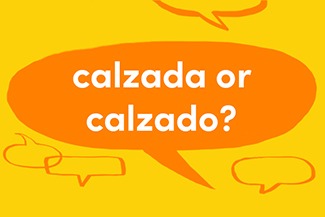In the first of a series of blog posts on Spanish nouns that can be either masculine or feminine depending on the sense we look at capital (meaning capital).
You can listen to the pronunciation of capital in the audio clip below:
Capital is masculine (reminder: like dinero, money) when it refers to money or resources:
el capital invertido en las sociedades cotizadas en Bolsa
the capital invested in companies quoted on the Stock Exchange
Claro que no queremos arriesgar un capital enorme en este proyecto.
Obviously we don’t want to risk a huge amount of capital on this project.
Capital is feminine (reminder: like ciudad, city) when it refers to the most important city in a country or region:
Buenos Aires es la capital de Argentina.
Buenos Aires is the capital of Argentina.
París es una capital muy hermosa.
Paris is a very beautiful capital city.
Don’t forget to make any articles and adjectives agree with the gender and number of the noun they modify:
Hoy día proliferan estos establecimientos por todas las capitales europeas.
Today these establishments are springing up in all European capital cities.
Note that to refer to a capital letter you use máyuscula instead. Its opposite is minúscula (small or lower-case letter):
Lo que de verdad me atraía era la Historia con mayúscula.
What really appealed to me was History with a capital H.
Lleva mayúscula inicial cuando forma parte del título. Se escribe con minúscula y en cursiva en los restantes casos.
It has an initial capital when it’s part of the title. It’s written with lower case and in italics in the remaining cases.
Come back next week for another in our series on Spanish nouns whose gender varies according to sense.



